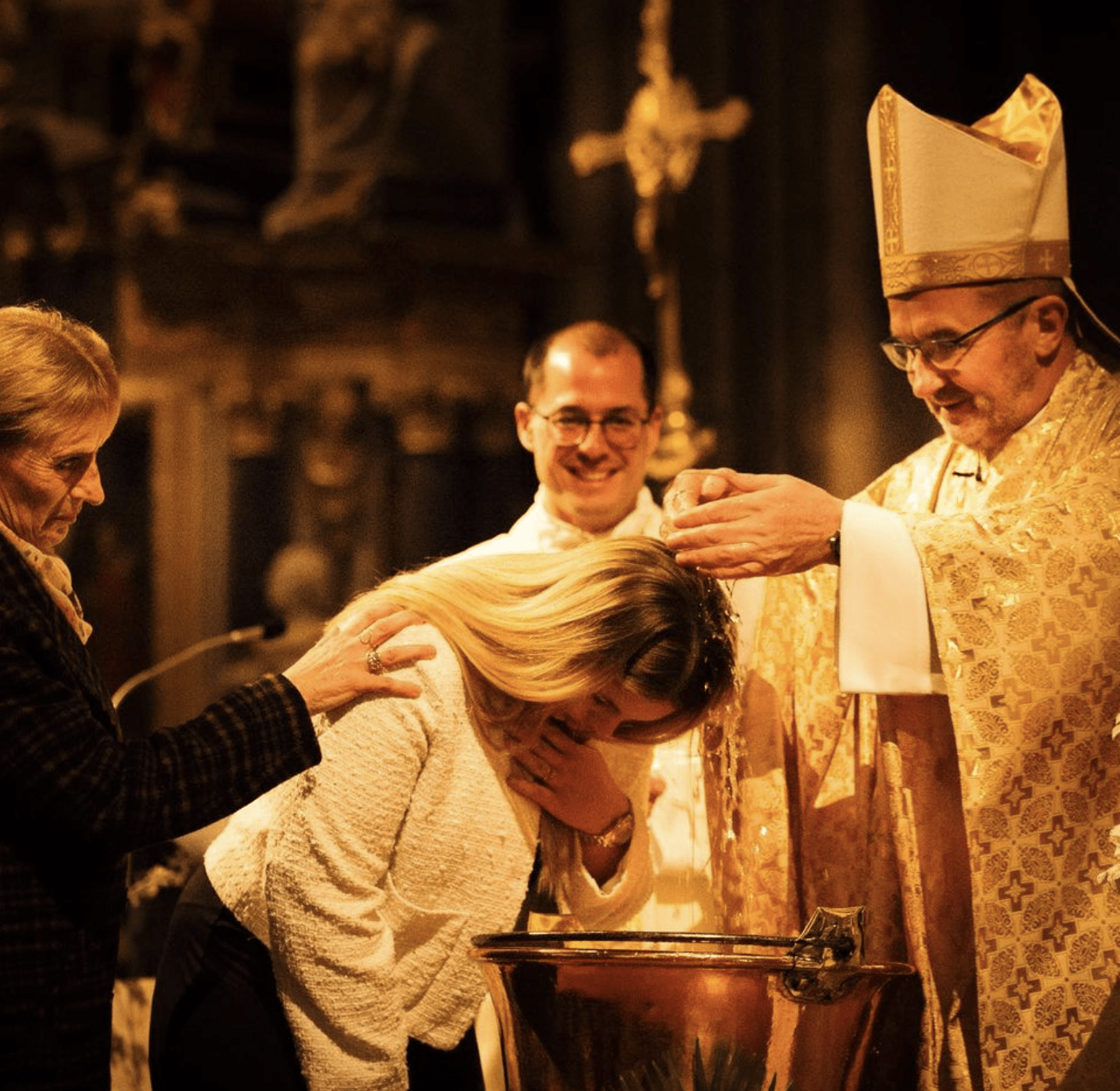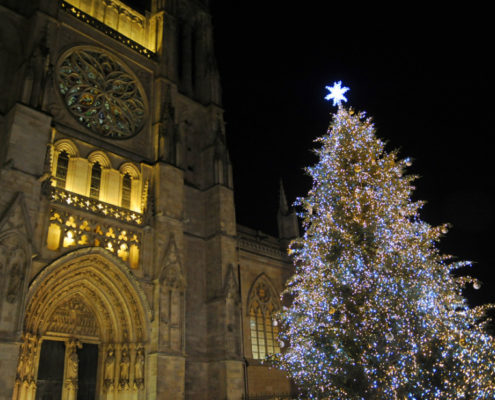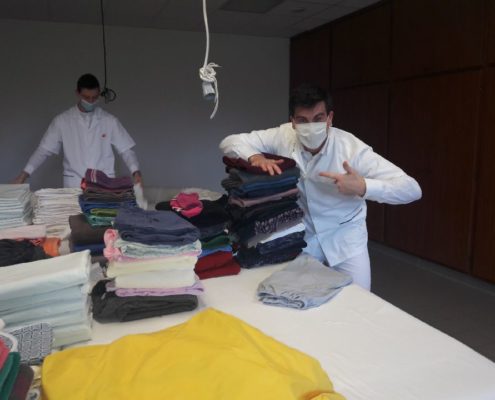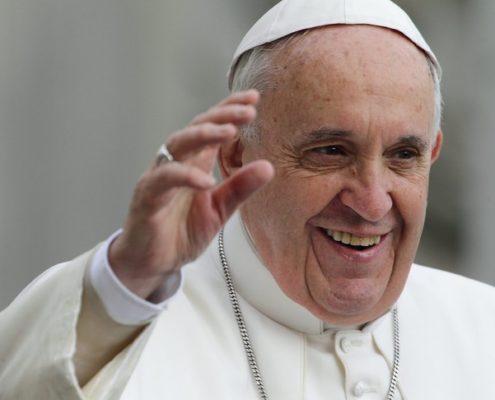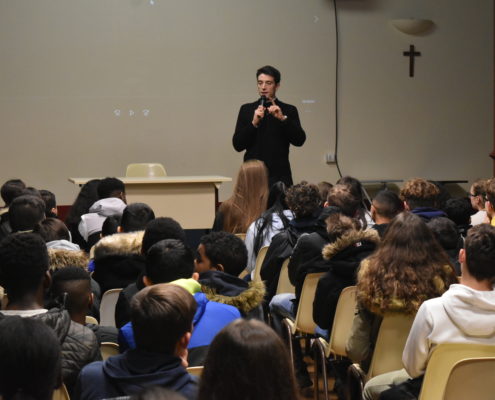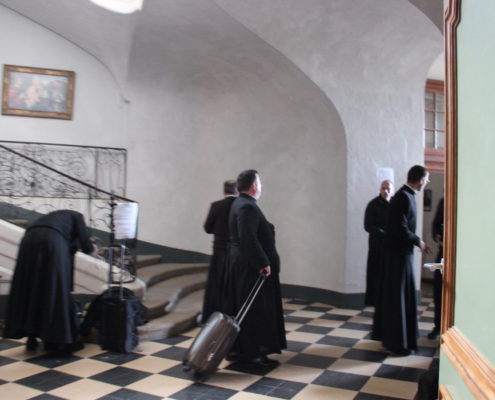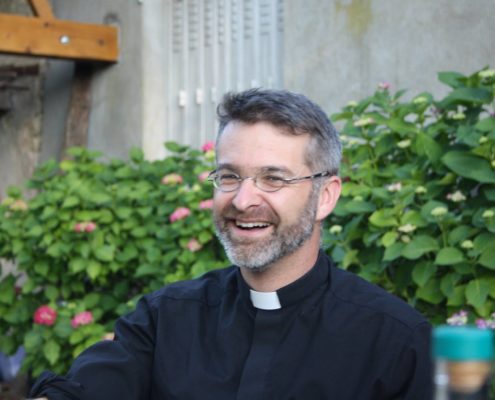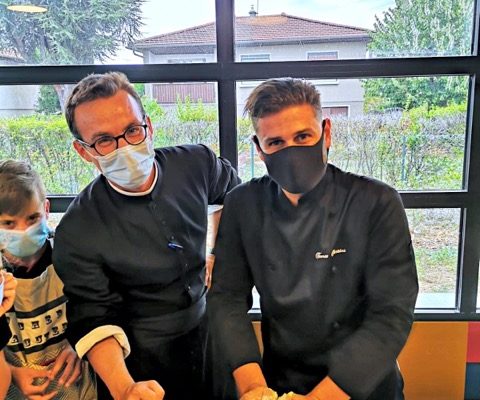12th April 2024
The figure is out: 12,000 baptisms at Easter in 2024[1], of which more than 7,000 were adults. In a society in search of statistics, that’s pretty good! Some prefer to see it as the work of the Holy Spirit alone, while others, such as certain journalists, are quick to point to an “underlying trend”, which the French episcopate welcomes, but which does not make up for the de-Christianisation of French society[2], preferring to reduce faith to a simple sociological reality. Surely the phenomenon is not miraculous in the human and journalistic sense of the term! No, society is not in the process of becoming Christian again as we understood it in the 1900s or 1950s, because evangelisation will never follow a predetermined plan. But, more and more young people between the ages of 15 and 30 are rediscovering the faith, often via social media. The proof is in the number of baptisms, but also on Ash Wednesday. From Douai to Gap, via Mulhouse to the borders of Loir et Cher, dozens of secondary school students and young adults came to witness the ancient gesture of the imposition of ashes. So, which viewpoint of faith should we tak?
To quote the famous expression of the English historian Arnold Toynbee, this is a challenge for us, because welcoming these rather young adults is a challenge in itself. Under the impulse of the Holy Spirit, what answer can we provide?
First of all, we should ask ourselves where they come from. « Where do they come from? » asks the Elder of the Apocalypse. The answer is simple: the Holy Spirit and the Church. Whatever we may say, the Spirit of Christ is always at work, working in hearts, even beyond the visible boundaries of the Church. We can start by thanking all the Christians who have gone before us for having sown, each in their own place, the buds that we are now seeing blossom.
« Who are they? » also asks this Elder. Men and women whose joy is to discover God coming to save them! “Now when they heard this, they were cut to the heart, and they asked Peter and the other apostles, ‘What are we to do, my brothers?’” (Acts 2:37). These words are still deeply relevant to them today. Unfortunately, by the age of 20, these people have often already seen the whole of life and human existence. Confronted with the painful question of the true meaning of their lives, they either look into their hearts, where the Trinity is waiting for them: “You were inside me and I was outside”[3] as Saint Augustine declared at the time of his conversion. Or they look at their surroundings and, struck by the rich architectural heritage of the Middle Ages, they wonder how their forebears managed to build their lives as well as the magnificent jewels that are so often our old village bell towers.
In these two cases, which are often combined, they dare to cross the threshold of the church, to attend one Mass and then another, or an Alpha course or an evening of Christian camaraderie, and so on. So the answer to the challenge is beginning to emerge. We need to create places for Christian fellowship, where everyone can come freely, with no time or commitment constraints, and no fear of being judged. Places where people can pray and listen to God, where they can experience the Father’s mercy, Christ’s friendship and the consolation of the Holy Spirit.
Finally, we have both a joy and a difficulty. The joy lies in the fact that these people are outside any ecclesial category. Neither progressive nor traditionalist in the sociological sense of the term, they simply want to hear about the Christian faith and know how to guide their lives according to this criterion. In this way, they encourage unity between all the tendencies in a parish, deepening the spiritual and prayer life of those who may have abandoned it in favour of Christian action alone. At the same time, as they are often in fragile situations, particularly psychologically, they also bring into action people who had previously been less involved in practical service.
The difficulty arises here, because getting back on track in life takes time, especially in the spiritual life. At a time when the goal must be reached quickly or else something will have been missed, this is the main stumbling block and can be seen in their approach to the Christian faith, which is very much influenced by the impression of speed, distinctiveness and efficiency conveyed by the Acts of the Apostles. Such an approach is very reminiscent of the way evangelical Protestants conceive the life of faith. The challenge for a priest is to show the beauty of the Christian faith, including its religious and social aspects, particularly in terms of assiduity in the sacramental life and the acceptance that his regular and personal reading of the Scriptures must pass through the filter of the ecclesial community in order not to remain superficial. In a nutshell, the Catholic faith is founded on the virtues, which is nothing less than a slow and patient journey of incarnation towards the good of each of our daily actions. Human life becomes a Christian journey that takes time to reach eternity.
[1] https://eglise.catholique.fr/espace-presse/communiques-de-presse/550845-resultats-record-en-2024-du-nombre-de-catechumenes-en-france/ (searched 5th April 2024).
[2] Sauvaget Bernadette, Libération, article of the 27th March 2024 https://www.liberation.fr/societe/religions/eglise-catholique-hausse-spectaculaire-des-baptemes-dadultes-et-dados-20240327_3GADE6CMBZCFLDPTSUDRCJFNZA/ (searched 5th April 2024).
[3] Confessions, Book X, 27.

